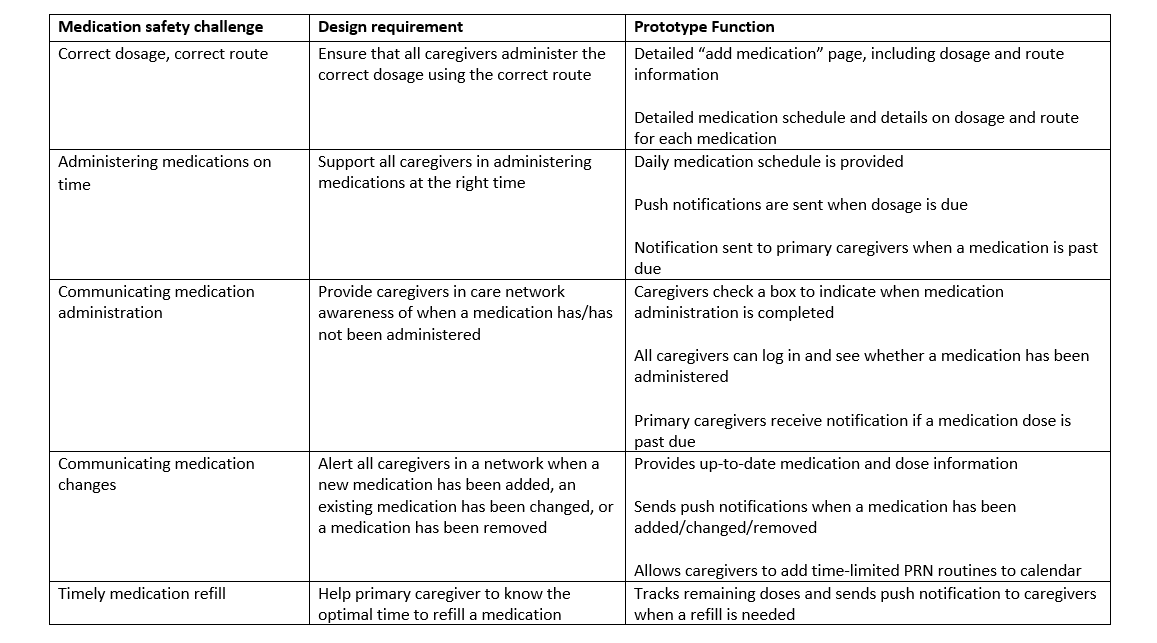Social Media & Technology
Social Media & Technology
619 - Co-design of a mobile application to improve in-home medication safety for children with medical complexity
Monday, May 1, 2023
9:30 AM - 11:30 AM ET
Poster Number: 619
Publication Number: 619.454
Publication Number: 619.454
Hannah K. Kearney, University of Wisconsin School of Medicine and Public Health, Madison, WI, United States; Anna Jolliff, Indiana University Bloomington, Seattle, WA, United States; Ryan J. Coller, University of Wisconsin School of Medicine and Public Health, Madison, WI, United States; Gemma Warner, Gemma Warner, Madison, WI, United States; James A. Feinstein, University of Colorado School of Medicine, Aurora, CO, United States; Michelle A. Chui, University of Wisconsin School of Pharmacy, Madison, WI, United States; Barbara Katz, Family Voices of Wisconsin, Madison, WI, United States; Theodore D. Bach, American Family Children's Hospital, Madison, WI, United States; Nicole E. Werner, Indiana University School of Public Health-Bloomington, Bloomington, IN, United States

Hannah K. Kearney, BS (she/her/hers)
Clinical Research Coordinator II
University of Wisconsin School of Medicine and Public Health
Madison, Wisconsin, United States
Presenting Author(s)
Background: Children with medical complexity (CMC) are uniquely vulnerable to medication errors and preventable adverse drug events due to complex medication regimens, polypharmacy, and/or exposure to high-risk medications. At least two unmet, but potentially addressable, needs contribute to administration errors for CMC in the home. First, no tools are designed to support CMC caregivers’ medication administration accuracy. Second, no tools exist to support families to ensure safe medication management across the network of other people involved in daily care such as extended family, in-home professionals, school personnel, and other “secondary” caregivers.
Objective: To engage primary and secondary caregivers of CMC in a co-design process to understand medication safety challenges and design requirements for a mobile app intervention, Meds@HOME, to improve medication safety across care networks.
Design/Methods: Primary caregivers (N=6) and secondary caregivers (N=2) of CMC were recruited from a children’s hospital-based pediatric complex care program. Design sessions (four with primary and two with secondary caregivers) were completed over five months. Design sessions focused on problem identification, solution generation, convergence around design requirements, and evaluating the Meds@HOME prototype. The research team of pediatricians, nurses, pharmacists, designers, software developers, and human factors engineers used team-based discussion between sessions to identify and refine design requirements across the sessions.
Results: All co-designers were female, and their CMC received M=10.5 (SD 5.8) medications/day. There were M=11.8 (SD 7.4) other caregivers involved in each child’s care. Co-designers identified five key medication safety challenges: correct dosage, correct route; administering medications on time; communicating about medication administration; communicating medication changes; and timely medication refills. For each medication safety challenge, co-designers identified design requirements and corresponding app functions (Table 1, Figures 1-2).
Conclusion(s): The medication safety challenges, design requirements, and app functions identified by caregivers in the present co-design study were used to guide the development of a mobile app that will support medication safety among care networks of CMC. The Meds@HOME application developed in this study will be tested in a clinical trial to determine if it improves medication safety for CMC at home.
.jpg)
.jpg)

